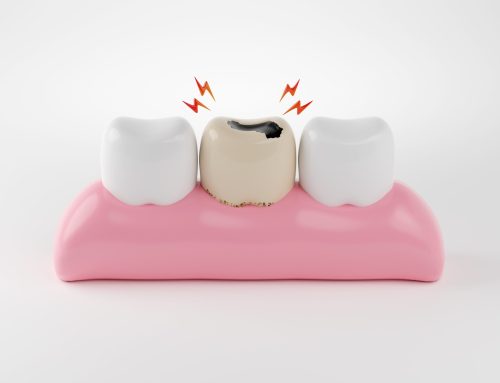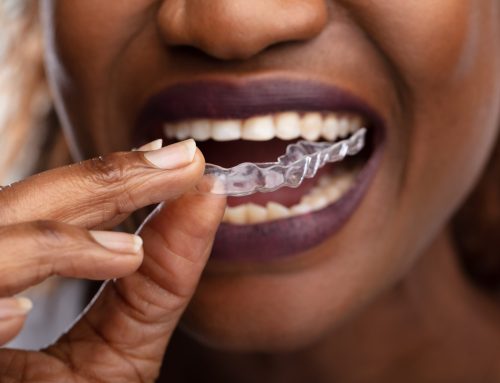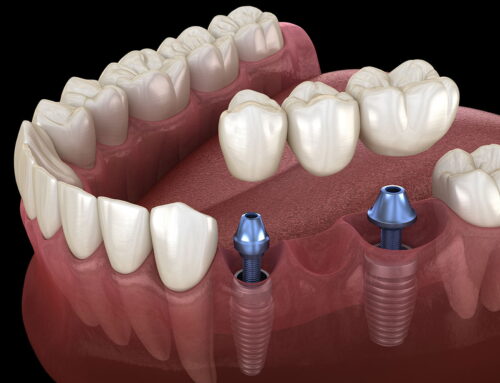Avoiding the dentist because you fear you may have tooth decay is the worst thing you can do. If caught early enough, tooth decay can be reversible, or you’ll have more options available to treat the problem. If you’re dodging your check-up calls or forgetting to schedule a cleaning, it can lead to further decay, which leaves you with fewer options and more expensive bills.
Tooth decay is preventable, and you can take action to give your oral health a boost. However, it isn’t always a forgetful brusher that causes the cavity. The most common causes our dentists see are:
- Bacteria has built up from forgetting your dental cleanings.
- Eating too many sugary/acidic foods or drinks.
- Excessive smoking and alcohol use.
- Fragile enamel
- Underlying health conditions that affect your oral health.
- Genetics.
It’s true – sometimes you’re just more prone to cavities due to your genes. That doesn’t mean you’ll lose your teeth! It just means you’ll have to be more attentive to your oral health. We have five tips to help you in tooth decay treatment and prevention before it becomes a bigger problem.
5 Tips on Tooth Decay Treatment and Prevention from a Dentist
Over the past few decades, we have seen incredible results in our tooth decay treatments. Tooth decay in children decreased from 74% to 23.6%. Adults with no natural teeth decreased from 23.6% to 6.4%.
This has been made possible with treatment options, availability, insurance, and education. The more you know about your teeth, the better equipped you are to protect them. So let’s start with how tooth decay actually happens.
When your food contains carbohydrates (sugars and starches), bacteria left in your mouth turn into acids. This is from all the common culprits, including bread, candy, cake, sugary coffee, and soda. Before the acids make a killer combo with food debris and saliva to form the plaque, you have the opportunity to brush it away. If that doesn’t happen, the plaque can stick to your teeth and dissolve the enamel, leaving you with a new cavity.
Sometimes, there are hard-to-reach places when you brush. And often, we don’t brush right after we eat – only after breakfast and before bed. With that in mind, we have five tips on how you can protect your mouth by focusing on your oral health practices.
1. Be mindful of your diet.
If you’re snacking throughout the day and always gravitating towards salty chips or a quick bite packed with carbs, sugars, or acidic ingredients, you’re increasing your risk of tooth decay.
If you’ve had popcorn, seeds, or anything that can get stuck in the grooves of your teeth, it’s crucial that you brush right after. The same goes for anything sticky. You’ll want to try and maintain a healthy diet that will support your oral health and boost the strength of your enamel.
You could also drink fluoridated water to help protect your teeth against decay. We recommend speaking to your dentist to ensure this method is best for you.
Basically – anything other than water isn’t great for your teeth. Some foods contain calcium or a small amount of fluoride that helps keep your teeth strong but can also get stuck in your teeth, defeating the plaque-preventing purpose. That’s why your diet is only a piece of the oral health puzzle – the essential aspect is the hygiene routine.
2. Pay attention to your dental hygiene routine at home.
Brushing your teeth twice a day isn’t the ultimate goal – it’s the minimum. You should brush after every meal to minimize the bacteria that hang out after you finish your food. But if you can only do it twice a day, it’s better than none!
It’s also important to pay attention to your toothpaste ingredients. You’ll want to use one with fluoride and include flossing in your daily routine. That way, you can remove the bacteria and food particles left behind that may be missed between your teeth.
3. Ask your dentist about sealants for preventing tooth decay.
Despite your meticulous oral healthcare regime, it may be time to seek additional preventative options if you find yourself getting cavities.
Dental sealants are a protective plastic coating applied to your teeth – typically on the back teeth you use for chewing. They are often hard to reach and do most of the hard work when eating. This process will seal any grooves or pits that collect food and bacteria. They last for several years and are often used in children and adolescents.
4. Fillings and crowns as tooth decay treatment.
Finding out your tooth decay has progressed to a cavity isn’t the news you want to hear. But there is good news! Finding this out early gives you options to save your tooth and avoid more costly or complicated treatments.
You can usually get a filling when the cavity only affects the enamel without damaging the inner pulp. If it’s progressed, you may need an artificial tooth crown. When this occurs, the damaged part of your tooth is removed, and you’ll get a crown that can be made up of porcelain, ceramic, and other materials.
Both methods can save and protect your tooth from the cavity reaching the roots.
5. Visit your dentist twice per year.
The best defence against tooth decay is prevention – and your dentist will be able to help you accomplish that. Despite vigorous brushing, thorough flossing, and being mindful of your diet – cavities can still happen. Your dentist can spot the early signs of tooth decay during your yearly exam.
Your cleanings every six months are a crucial part of your oral healthcare routine. Your dentist uses special tools and methods that clear plaque and tartar away that regular brushing can’t match.
Tooth decay is preventable, and with today’s research, you have the best treatment options available to help you maintain a healthy mouth. If you’ve been cavity prone, you should speak to your dentist about proactive options that will keep the tooth decay away. Contact your local Calgary dentists, where comfort meets confidence, to discuss your oral health plan.
Have you experienced some form of tooth decay? What treatment option did you need? Did you introduce more preventative practices? Share your experience with our readers who care about the health of their teeth in the comments below.






Leave A Comment